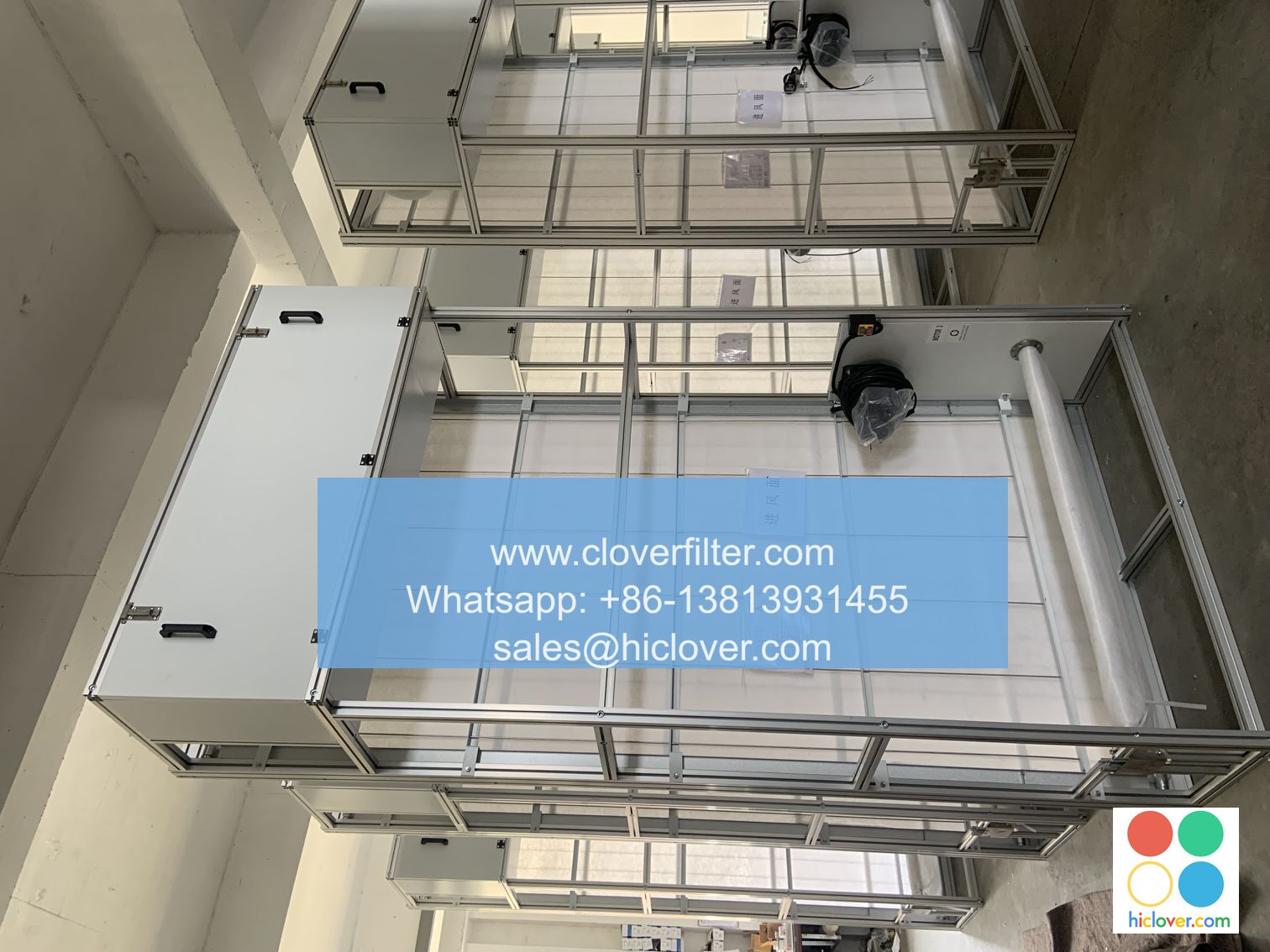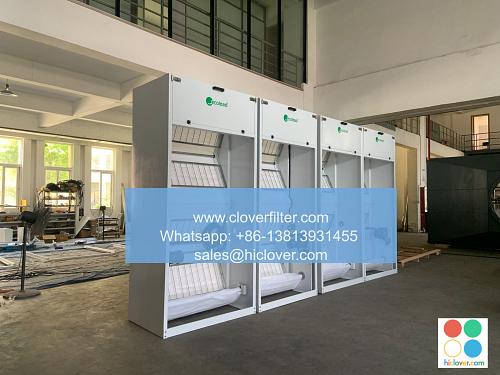Food Lab Air Quality Regulations: How Automatic Roll Air Filters Can Help with Compliance

Food laboratories play a critical role in ensuring the safety and quality of the food we eat. These laboratories are responsible for testing and analyzing food samples to detect contaminants, pathogens, and other harmful substances. However, food laboratories can also be a source of air pollution, which can compromise the accuracy of test results and pose health risks to laboratory personnel. To address this issue, regulatory agencies have established air quality regulations that food laboratories must comply with. One effective way to achieve compliance is by using automatic roll air filters.
Air quality regulations for food laboratories typically require the maintenance of a certain level of air cleanliness, measured in terms of particle concentration and microbial contamination. For example, the International Organization for Standardization (ISO) sets standards for air quality in laboratories, including limits on particle concentrations and microbial contamination. In the United States, the Occupational Safety and Health Administration (OSHA) regulates indoor air quality in laboratories, including food laboratories. Failure to comply with these regulations can result in fines, reputational damage, and even laboratory shutdowns.
Automatic roll air filters can help food laboratories comply with air quality regulations in several ways. These filters use a continuous roll of filter media that automatically advances to a new, clean section as the old section becomes dirty. This ensures that the air entering the laboratory is always filtered through a clean and effective medium, reducing particle concentrations and microbial contamination. Automatic roll air filters are particularly effective at removing particles as small as 0.3 microns, including dust, pollen, and other airborne contaminants that can compromise laboratory results.
In addition to improving air quality, automatic roll air filters can also help reduce laboratory operating costs. By minimizing the amount of airborne contaminants that enter the laboratory, these filters can reduce the frequency of equipment cleaning and maintenance, as well as the need for costly repairs and replacements. Furthermore, automatic roll air filters can help extend the lifespan of laboratory equipment by preventing damage from airborne contaminants.
Another benefit of automatic roll air filters is their ease of use and maintenance. Unlike traditional filter systems, which require manual replacement of filter media, automatic roll air filters are designed to be simple and convenient to use. The filter media is automatically advanced to a new, clean section as needed, eliminating the need for manual intervention. This not only saves time and labor but also reduces the risk of human error and exposure to airborne contaminants.
In terms of cost, automatic roll air filters are a highly cost-effective solution for food laboratories. While the initial investment in an automatic roll air filter system may be higher than traditional filter systems, the long-term savings and benefits can be significant. By reducing laboratory operating costs, minimizing equipment damage, and improving air quality, automatic roll air filters can pay for themselves over time. Additionally, many regulatory agencies offer incentives and tax credits for laboratories that invest in air quality improvement measures, including automatic roll air filters.
When selecting an automatic roll air filter system for a food laboratory, there are several factors to consider. These include the size and layout of the laboratory, the type and amount of airborne contaminants present, and the level of air cleanliness required. It is also important to consider the filter media used in the system, as well as the system’s maintenance and replacement requirements. By carefully evaluating these factors and selecting the right automatic roll air filter system, food laboratories can ensure compliance with air quality regulations while also improving laboratory efficiency and reducing operating costs.
In conclusion, automatic roll air filters are a highly effective solution for food laboratories seeking to comply with air quality regulations. By providing a continuous supply of clean and effective filter media, these filters can minimize particle concentrations and microbial contamination, reducing the risk of compromised laboratory results and improving indoor air quality. With their ease of use and maintenance, cost-effectiveness, and long-term benefits, automatic roll air filters are an essential component of any food laboratory’s air quality management strategy.
Frequently Asked Questions
Q: What are the benefits of using automatic roll air filters in food laboratories?
A: The benefits of using automatic roll air filters in food laboratories include improved air quality, reduced laboratory operating costs, and minimized equipment damage. These filters can also help extend the lifespan of laboratory equipment and reduce the risk of human error and exposure to airborne contaminants.
Q: How do automatic roll air filters work?
A: Automatic roll air filters use a continuous roll of filter media that automatically advances to a new, clean section as the old section becomes dirty. This ensures that the air entering the laboratory is always filtered through a clean and effective medium, reducing particle concentrations and microbial contamination.
Q: What factors should be considered when selecting an automatic roll air filter system for a food laboratory?
A: When selecting an automatic roll air filter system for a food laboratory, factors to consider include the size and layout of the laboratory, the type and amount of airborne contaminants present, and the level of air cleanliness required. It is also important to consider the filter media used in the system, as well as the system’s maintenance and replacement requirements.
Q: Are automatic roll air filters cost-effective?
A: Yes, automatic roll air filters are a highly cost-effective solution for food laboratories. While the initial investment in an automatic roll air filter system may be higher than traditional filter systems, the long-term savings and benefits can be significant. By reducing laboratory operating costs, minimizing equipment damage, and improving air quality, automatic roll air filters can pay for themselves over time.

